Chapter 24
The Cold War
By Boundless
The Truman presidency was characterized by an internationalist foreign policy, the Cold War, and domestic unrest.
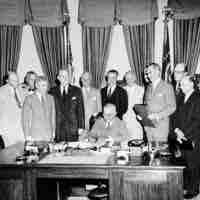
Following World War II, Truman faced new political challenges, such as preventing Soviet expansion and rebuilding a peacetime economy.
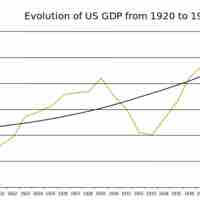
Following the war, the U.S. was largely able to maintain economic growth and resist inflation.
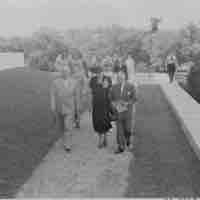
President Truman's actions on civil rights are seen as early movement in the decades-long quest for legal equality for African Americans.
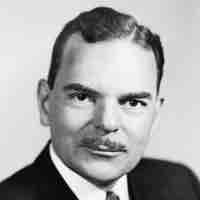
Despite predictions that Republican candidate Thomas Dewey would win the 1948 election, incumbent Democrat Harry Truman won.
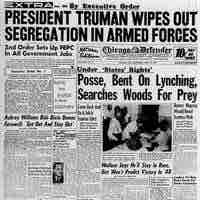
President Truman's domestic reform agenda, called the Fair Deal, was a set of proposals aimed at economic development and social welfare.
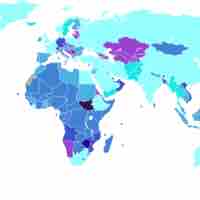
Upon the ratification of the Charter of the United Nations in October 1945, the United Nations was officially established.
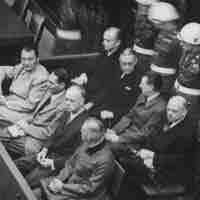
The Nuremberg Trials were military tribunals that tried Nazi political and military leadership for alleged crimes committed during the war.
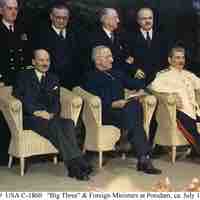
The origins of the Cold War can be traced through numerous conflicts between the Soviet Union and Western nations starting with the Russian Revolution in 1917.
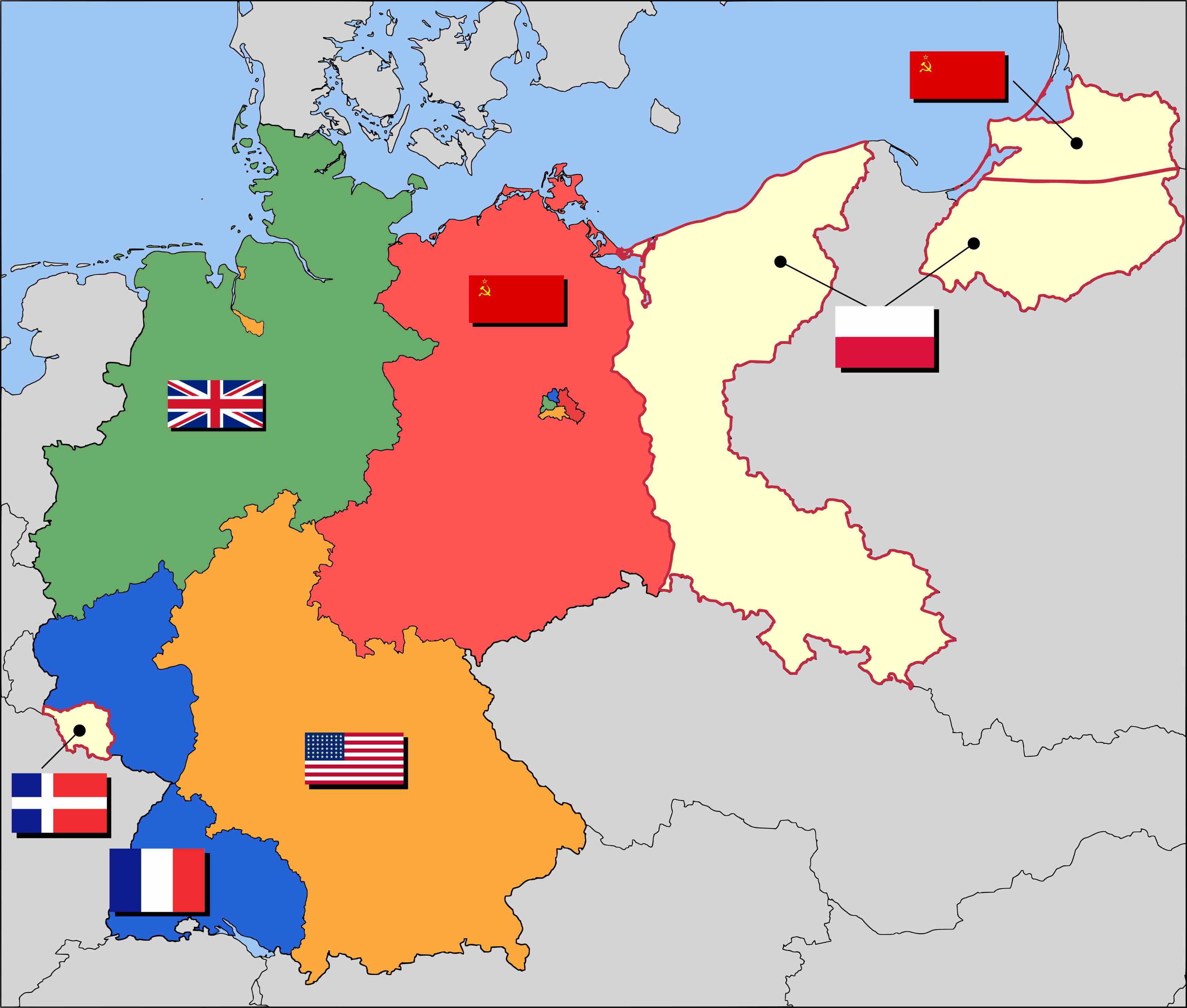
The Cold War began with the formation of the Eastern Bloc, as well as the implementation of the Marshall Plan and the Berlin Blockade.
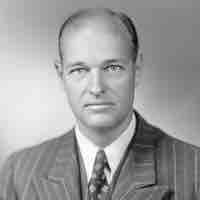
Containment was the Cold War policy of preventing the spread of Soviet communism (while not confronting it where it already existed).
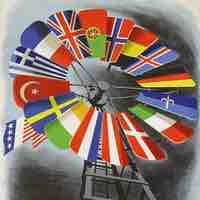
The Truman Doctrine was the start of the policy of containment; it was followed by economic restoration of Europe through the Marshall Plan.
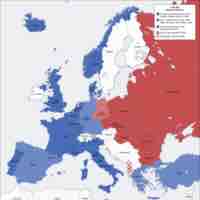
Originally created in response to the Soviet threat, NATO is an intergovernmental mutual defense organization.
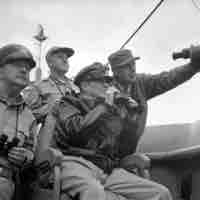
The Korean War was the first militarized instance of containment, as U.S. and South Korea fought against communist North Korea.
The Korean War was one of the most significant events of the Cold War, caused largely by the broader tensions between America and the Soviet Union.
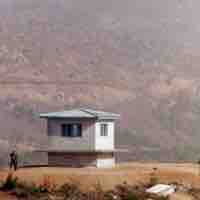
An armistice ceasefire in 1953 ended fighting in Korea and established a buffer zone between North and South Korea, but tensions remain.
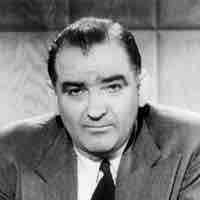
"McCarthyism" is a term arising from the paranoia of the Second Red Scare in the U.S. from 1950-54, which was fed by Joseph McCarthy, a U.S. Senator from Wisconsin.
The 1952 Presidential election hinged on the issues of Korea, Communism, and Corruption.